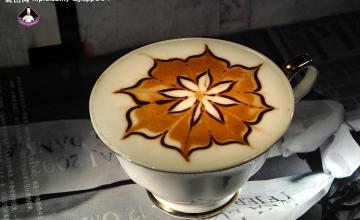Tanzania coffee with pure flavor Taste Manor Features Boutique coffee Introduction
Tanzania is one of the birthplaces of ancient humans. BC had trade with Arabia, Persia, India and other places.
In the 7th and 8th century, Arabs and Persians immigrated in large numbers. The Arabs established the Islamic kingdom at the end of the 10th century, and the Persians established the Zanzibar empire on the eastern coast of the mainland. [3]
In 1886, Tanganyika Inland was placed under the German sphere of influence. In November 1917, British forces occupied the whole territory of Tanganyika. In 1920, Tanganyika became a British "mandated territory". In 1946, the United Nations General Assembly adopted a resolution to change it into a British "trust land." on May 1, 1961, Tanzania achieved internal autonomy, declared independence on December 9 of the same year, and established the Republic of Tanganyika a year later.
Zanzibar became a British "sanctuary" in 1890, gained autonomy on June 24, 1963, declared independence on December 10 of the same year, and became a constitutional monarchy ruled by the King of the Sudan in December 2005. Kikwete was elected President of the United Republic. Karume was re-elected president.
In early 2008, the Revolutionary Party and the RUF held negotiations on the establishment of a coalition government in Zanzibar, but no agreement was reached.
In 2009, the joint issue of Tanzania and mulberry has made some progress, but the dispute between the mainland and Sangdao on the ownership of mulberry oil and gas resources has heated up. Political reconciliation negotiations between the Sangdao Revolutionary Party and the main opposition party RUF resumed at the end of the year after a break at the beginning of the year. President Karume of Sang and General Secretary of RUF Hamad held historic talks, which attracted widespread attention from all parties.
In early 2010, there was a new trend of political reconciliation in Sangdao, and the Revolutionary Party and the Public RUF reached an agreement on the formation of a Sangdao unity government. In July of the same year, the Sang referendum adopted a resolution on the establishment of a national unity government. In November, the general election was held smoothly, the Sangdao National Unity Government was established, and the President, the second vice president and 11 ministers came from the Revolutionary Party. Sang's first vice president and 8 ministers from the RUF rainfall types are divided into bimodal distribution and unimodal distribution. The areas with double bee rainfall include the provinces around the Lake Victoria basin, the northeast highlands, the coastal and inland northeastern. The bimodal rainfall area is characterized by two rainy seasons. The short rainy season occurs from September to December. The total rainfall can reach 200-500 mm. The long rainy season occurs from March to May, and the rainfall reaches 300-600 mm. The areas outside the double bee distribution rainfall area belong to the single bee distribution rainfall area. The rainfall time is from November to April, and the rainfall is up to 500-1000 mm.
Tanzania's main coffee producing area, located at the foot of Mount Kilimanjaro, is rich in volcanic soil. Some coffee trees planted here are more than 100 years old. Coffee was first introduced by Christians from Kenya to grow coffee. Coffee trees must be carefully taken care of, weeded and fertilized. Moreover, old branches must be cut off so that new branches can grow to maintain the quality of coffee beans. Coffee bean processing plants are well equipped; coffee beans are an important economic crop in Tanzania, and the local government attaches great importance to this industry: raw beans are unbaked beans, which contain 11.5% fat; 11.5% moisture; 28.6% crude fiber; 4.0% minerals; 6.2% tannin. Caffeine 1.3%; essence 17.0%; sugar 8.1%; protein 11.8%.
Baked beans: roasted beans, which contain 13.0% fat; 1.5% caffeine; 29.5% crude fiber; 2.6% moisture; 5.0% minerals; 4.2% tannic acid; 29.4% essence; 2.0% sugar; protein 12.8% characteristics of Tanzanian coffee:
Flavor: full-bodied and refreshing, with lower acidity than Kenyan coffee, pure flavor and aroma
Suggested baking method: medium baking
★★: good coffee exports from Tanzania (Tanzania) play an important role in the entire national economy.
In the past, the coffee industry in Tanzania has been dominated by manor cultivation, but now more than 85% are grown by small farmers. Many small farmers form cooperative organizations, the most important of which is the Kilimanjaro Cooperative Alliance (KilimanjaroCooperativeUnion, referred to as KNCU). Tanzanian coffee is sold by the Tanzanian Coffee Management Council (TanzanianCoffeeMarketingBoard, TCMB) to private exporters by auction. In the 1980s, most coffee sales in Tanzania shifted from auctions to being sold directly to the Tanzania Coffee Management Committee.

Important Notice :
前街咖啡 FrontStreet Coffee has moved to new addredd:
FrontStreet Coffee Address: 315,Donghua East Road,GuangZhou
Tel:020 38364473
- Prev

Introduction to the Jamaican Blue Mountain Coffee Flavor Manor with a good balance of acid, sugar, alcohol and bitterness
By the time the Europeans arrived in Australia, the Blue Mountains had been occupied for thousands of years by local aborigines, the Gundungurra, who are now represented by the Aboriginal companies of the Gundonggula tribal council in Katumba. According to indigenous legend, Blue Mountain originated from the legendary battle between dream creatures Mirigan and Garangatch, who is rumored to have it.
- Next

Full-bodied Indonesian civet coffee flavor taste manor characteristic boutique coffee introduction
In the 15th century, Portugal, Spain and Britain invaded successively. The Dutch invaded in 1596, the East India Company with government authority was established in 1602, and the colonial government was established at the end of 1799. Japan occupied Indonesia in 1942. After Japan surrendered in 1945, Indonesia broke out the August Revolution. On August 17, 1945, it declared its independence and established the Republic of Indonesia. After Indonesia became independent, it successively used military force.
Related
- Detailed explanation of Jadeite planting Land in Panamanian Jadeite Manor introduction to the grading system of Jadeite competitive bidding, Red bid, Green bid and Rose Summer
- Story of Coffee planting in Brenka region of Costa Rica Stonehenge Manor anaerobic heavy honey treatment of flavor mouth
- What's on the barrel of Blue Mountain Coffee beans?
- Can American coffee also pull flowers? How to use hot American style to pull out a good-looking pattern?
- Can you make a cold extract with coffee beans? What is the right proportion for cold-extracted coffee formula?
- Indonesian PWN Gold Mandrine Coffee Origin Features Flavor How to Chong? Mandolin coffee is American.
- A brief introduction to the flavor characteristics of Brazilian yellow bourbon coffee beans
- What is the effect of different water quality on the flavor of cold-extracted coffee? What kind of water is best for brewing coffee?
- Why do you think of Rose Summer whenever you mention Panamanian coffee?
- Introduction to the characteristics of authentic blue mountain coffee bean producing areas? What is the CIB Coffee Authority in Jamaica?

